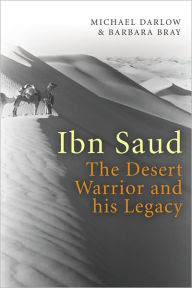 Holly Schindler is a hybrid author of critically acclaimed traditionally published and Amazon bestselling independently published works for readers of all ages. Her previous YAs (A Blue So Dark, Playing Hurt, and Feral) have received starred reviews from Booklist and Publishers Weekly, won silver and gold medals from ForeWord Reviews Book of the Year and the IPPY Awards, respectively, been featured on Booklist’s First Novels for Youth, School Library Journal’s “What’s Hot in YA,” and been selected as a PW Pick. Kirkus praised her latest YA, Spark, for “crisp prose [that] flows easily between the past and present,” and Booklist claimed the novel casts “a shimmering spell.”
Holly Schindler is a hybrid author of critically acclaimed traditionally published and Amazon bestselling independently published works for readers of all ages. Her previous YAs (A Blue So Dark, Playing Hurt, and Feral) have received starred reviews from Booklist and Publishers Weekly, won silver and gold medals from ForeWord Reviews Book of the Year and the IPPY Awards, respectively, been featured on Booklist’s First Novels for Youth, School Library Journal’s “What’s Hot in YA,” and been selected as a PW Pick. Kirkus praised her latest YA, Spark, for “crisp prose [that] flows easily between the past and present,” and Booklist claimed the novel casts “a shimmering spell.”Recently I asked Schindler about what she was reading. Her reply:
My reading tastes really do run the gamut. I’m an old lit major; when I was in school, I read everything from Beowulf to Ursula K. Le Guin. I still love my old classics (and often reread my fave Jane Austens). Currently, I’m getting into graphic novels (Daniel Clowes’s Patience and Joe Hill’s Locke & Key).Visit Holly Schindler's website, blog, Facebook page, and Twitter perch.
I’ve also been drawn to writing and reading books that contain older POVs (my novel Miles Left Yet focuses on three characters who reside at the Granite Ridge RetirementCommunity—and take a road trip together in a vintage Mustang). So I was quick to snap up the book Anderson Cooper and Gloria Vanderbilt co-wrote (The Rainbow Comes and Goes).
In addition, my independently-released work has tended toward the shorter side as of late—I’m releasing one short story a month throughout 2016 in my Forever Finley Short Story Cycle (you can view more on that here. So many of my reads are shorter lately, too: short stories by Alice Munro and Olive Kitteridge by Elizabeth Strout.
Coffee with a Canine: Holly Schindler & Jake.
My Book, The Movie: Feral.
My Book, The Movie: Spark.
--Marshal Zeringue






















































